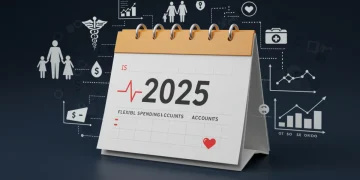Freelance tax fine structure overhaul: what you need to know

Freelance tax fine structure overhaul includes updated filing requirements, clearer deduction eligibility, and ongoing record maintenance, enabling freelancers to manage their taxes more effectively and minimize liabilities.
Freelance tax fine structure overhaul can feel overwhelming, but it doesn’t have to be. With the right insights and preparation, you can navigate this complex landscape and potentially save on your taxes. Ready to learn more about how these changes affect you?
Understanding the freelance tax system
Understanding the freelance tax system is crucial for anyone working independently. Many freelancers are unaware of the complexities involved in tax filing, which can lead to mistakes and potential fines. With the right knowledge, you can navigate this system more effectively.
Key Components of the Freelance Tax System
There are several important factors to consider in the freelance tax system. These elements ensure you manage your taxes appropriately throughout the year.
- Self-Employment Tax: As a freelancer, you are responsible for paying self-employment tax, which includes Social Security and Medicare taxes.
- Estimated Taxes: Unlike regular employees, freelancers must pay estimated taxes quarterly based on their earnings.
- Deductions: Many business-related expenses can be deducted, reducing the taxable income significantly.
Understanding these key elements will help you make informed decisions about your taxes. Remember, staying organized throughout the year will make tax season much easier.
Navigating Tax Deductions
Tax deductions can greatly impact your overall tax liability. As a freelancer, you may claim various expenses that contribute to your work, but you need to keep accurate records.
Common deductions include:
- Home office expenses
- Business-related travel and meals
- Software and equipment purchases
Taking advantage of these deductions not only reduces your income but also lowers the amount you owe. Ensure you have documentation to support your claims, as the IRS may require evidence.
The freelance tax system may seem daunting, but understanding its core principles can make a significant difference in your financial health. Always consider consulting a tax professional to guide you through complexities and optimize your savings.
Common tax pitfalls freelancers face
Common tax pitfalls freelancers face can make tax filing a stressful experience. Many freelancers overlook essential details that lead to errors or increased liabilities. Knowing these common mistakes can save you time and money.
Failure to Track Income Accurately
One major issue freelancers encounter is not keeping accurate records of their income. This can result in underreporting earnings, which may lead to penalties. It’s critical to track every payment received and maintain clear records.
Here are some effective practices to avoid this pitfall:
- Use accounting software to keep everything organized.
- Issue invoices for all work completed.
- Regularly review your financial statements.
Implementing these practices can ensure you report accurate earnings.
Neglecting Deductions
Many freelancers miss out on valuable deductions, which can significantly reduce their taxable income. Commonly overlooked deductions include:
- Home office expenses
- Internet and phone bills
- Client-related travel costs
Understanding what qualifies as a deductible expense is essential for freelancers. Maintaining receipts and documentation will support these claims during tax season.
Another common pitfall is failing to pay estimated taxes on time. Freelancers must estimate their tax obligations and pay them quarterly. Missing deadlines can result in penalties and interest.
To manage this effectively, consider setting reminders and setting aside money regularly for these payments. This proactive approach will help you stay on top of your tax responsibilities.
Avoiding these common tax pitfalls will help freelancers maintain compliance and minimize unnecessary stress during tax season. With diligence and awareness, you can navigate the complexities of the freelance tax system successfully.
How to navigate tax deductions effectively

Learning how to navigate tax deductions effectively can help freelancers save a significant amount of money. Deductions play a vital role in reducing your taxable income and lowering the taxes owed. Many freelancers miss out on these valuable savings simply because they are not aware of what can be claimed.
Keep Detailed Records
One of the first steps in navigating tax deductions is to maintain detailed records of all expenses related to your freelance work. This documentation will serve as proof of your claims.
- Receipts: Save all receipts for business-related purchases.
- Bank Statements: Regularly review your bank statements for relevant transactions.
- Expense Tracking Apps: Consider using apps to monitor your expenses automatically.
By organizing your finances throughout the year, you will make the tax filing process smoother.
Understand Qualified Deductions
Familiarize yourself with the types of deductions you can claim. This knowledge helps ensure you maximize your savings. Common deductions for freelancers include:
- Home Office Deduction: If you use part of your home for business, you may qualify for this deduction.
- Vehicle Expenses: Track mileage for business-related travel.
- Software and Tools: Deductions for necessary tools that aid your work.
Understanding these deductions and how to leverage them can significantly impact your tax return.
Another tip is to consult a tax professional who specializes in freelance work. They can provide personalized advice on what deductions apply to your specific situation.
Being proactive and informed about navigating tax deductions will help you maximize your tax benefits and maintain financial health as a freelancer.
Recent changes in tax regulations for freelancers
Recently, there have been significant changes in tax regulations for freelancers. These adjustments can have a big impact on how freelancers handle their taxes. It’s crucial to stay informed about these updates to ensure compliance and maximize potential benefits.
New Filing Requirements
One of the recent changes involves updated filing requirements for freelancers. The IRS has introduced stricter guidelines on reporting income. This means freelancers must be more diligent in tracking their earnings and expenses.
Freelancers should pay attention to:
- Keeping accurate records of all income sources.
- Understanding which expenses can be deducted.
- Using appropriate forms for filing taxes.
These elements play a vital role in meeting the new requirements successfully.
Changes in Deduction Eligibility
Another notable change relates to deduction eligibility. The IRS revised some existing regulations, affecting what freelancers can deduct. Educating yourself about these changes helps you identify potential savings.
- Home Office Deduction: The criteria for claiming home office expenses have become clearer, allowing more freelancers to qualify.
- Health Insurance Deductions: Eligibility for health insurance deductions may expand, providing further relief.
- Education Expenses: Freelancers can now more easily deduct costs related to skill development and training.
Understanding these changes will help freelancers adjust their tax strategies accordingly.
Overall, staying updated on recent tax regulations is vital for managing your freelance business successfully. It can influence not only how you file your taxes but also your overall financial planning as a freelancer.
Tips for maintaining organized financial records
Maintaining organized financial records is essential for freelancers. Good organization can save time, reduce stress, and ensure you are prepared for tax season. Developing effective habits early can lead to better management of your finances.
Choose the Right Tools
Selecting proper tools to keep your records in order is a vital first step. Various applications and platforms can make your record-keeping easier.
- Accounting Software: Popular programs like QuickBooks or FreshBooks can help automate billing and track expenses.
- Spreadsheets: Using Google Sheets or Excel lets you customize your tracking according to your needs.
- Mobile Apps: Consider using financial apps for tracking expenses on the go.
Finding the right tools will create a structure for managing your finances effectively.
Set Regular Review Dates
Establishing a routine for reviewing your financial records can prevent issues from piling up. Consider setting aside time each week or month specifically for this purpose.
During your review sessions, focus on:
- Updating income and expense records.
- Revisiting budget goals.
- Checking the accuracy of your financial data.
These regular check-ins ensure that your financial records remain accurate and up-to-date.
Moreover, don’t forget to keep digital and physical copies of important documents. Storing these documents in an organized fashion, both online and offline, will assist you in keeping important information accessible and secure.
Utilizing labeling systems for files, both digital and physical, boosts organization. Properly labeled folders make it easy to locate necessary documents when tax season arrives. This level of preparation enhances your ability to maintain clarity in your freelance business.
In conclusion, navigating the freelance tax landscape can feel overwhelming, but understanding key aspects can ease the process. Keeping organized financial records, knowing about deduction opportunities, and staying updated on regulatory changes are essential for financial health. By taking proactive steps, freelancers can minimize taxes and maximize their deductions, leading to a more rewarding freelance experience.
FAQ – Frequently Asked Questions about Freelance Tax Management
What records should I keep for my freelance taxes?
You should keep records of all income, expenses, invoices, and receipts. This documentation helps support your claims and ensures accurate tax reporting.
How can I track my tax deductions?
Use accounting software or spreadsheets to categorize and log your expenses throughout the year. Regularly review your expenses to ensure you capture all eligible deductions.
What are the consequences of not filing my taxes correctly?
Failing to file accurately can result in penalties, interest charges, and potential audits. It’s vital to stay informed about tax rules to avoid these issues.
Should I hire a tax professional as a freelancer?
Hiring a tax professional can be beneficial, especially for navigating complex regulations and maximizing deductions. They can provide tailored advice for your specific situation.





